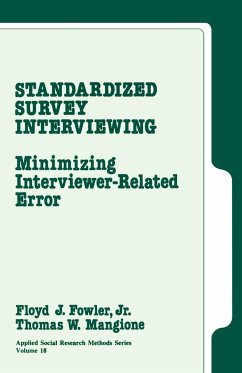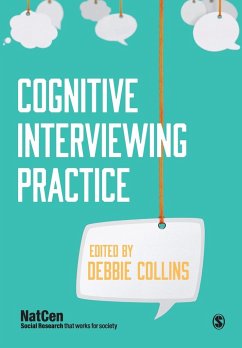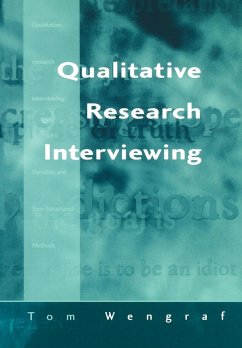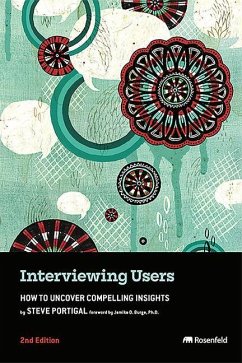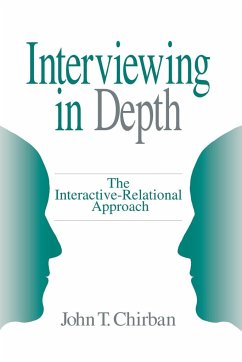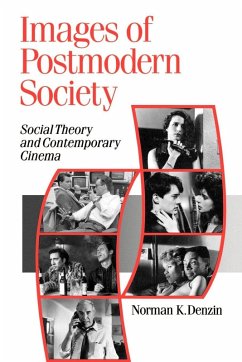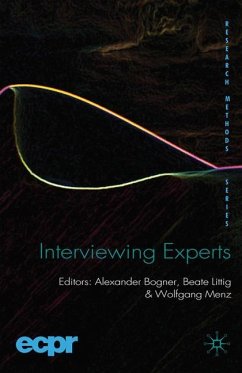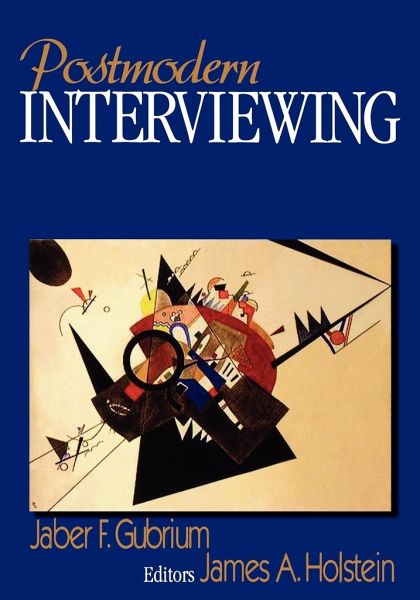
Postmodern Interviewing
Versandkostenfrei!
Versandfertig in 1-2 Wochen
126,99 €
inkl. MwSt.

PAYBACK Punkte
63 °P sammeln!
Postmodern Interviewing offers readers an exploration of the postmodern interview, a conversation with diverse purposes in which the communicative format is constructed as much within the interview conversation as it stems from predesignated research interests. The book provides cutting-edge discussions of new horizons in interviews, featuring reflexivity, poetics and power as new ways of gathering experiential knowledge. Hailing from anthropology, family studies, history, and sociology, the contributors present the ambitious new directions in which the interview has gone.





